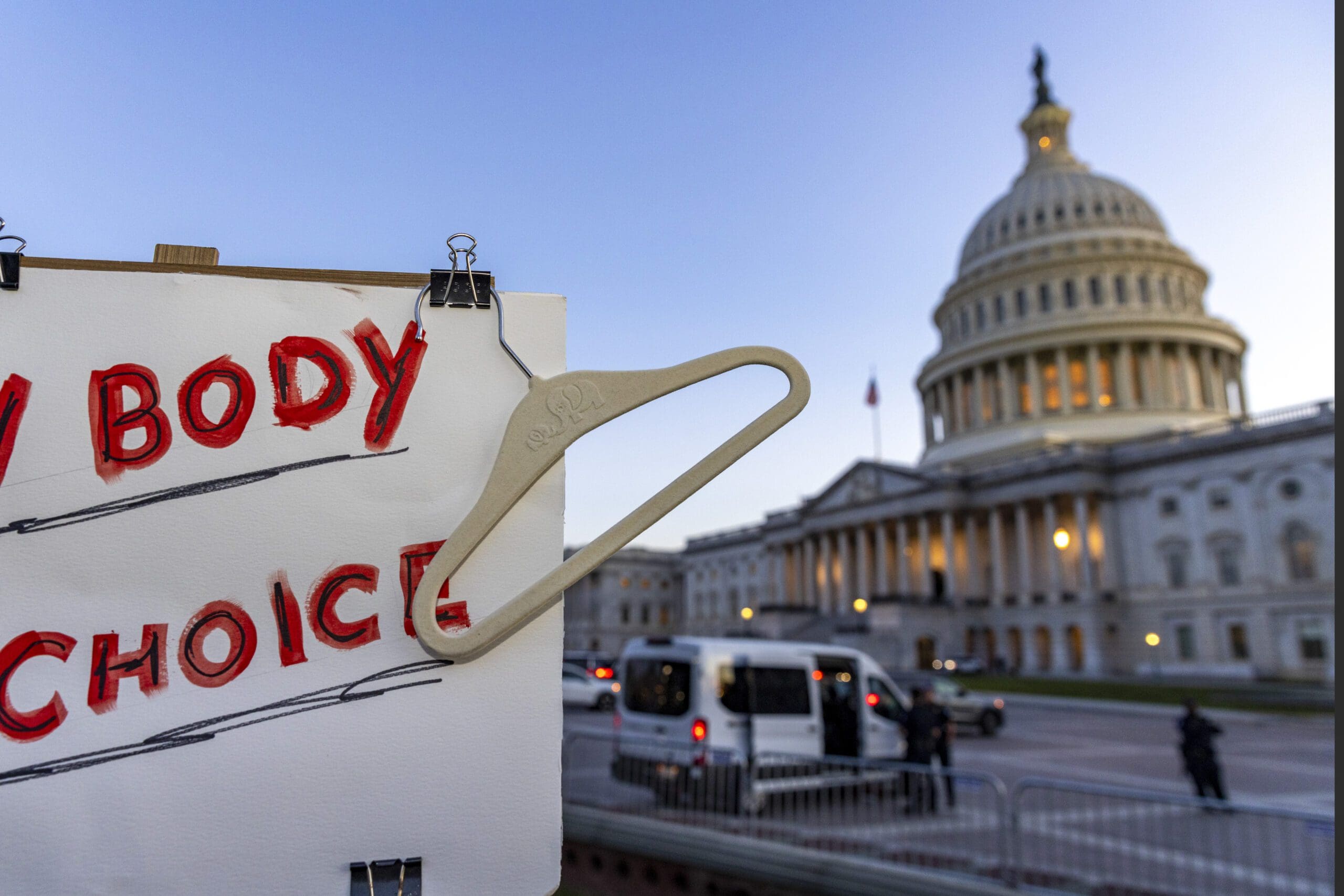
10 races that will shape abortion access in the states
The Supreme Court’s June ruling overturning Roe v. Wade shifted the question of abortion rights to the states — into the hands of governors, attorneys general, state lawmakers and judges. Now voters get to weigh in.
In the four months since the Supreme Court’s decision, more than a dozen states have implemented near-total bans on the procedure, cutting off access for millions of people, and several more plan to take up the issue when legislatures reconvene in January. Who resides in the governor’s mansion or sits on the state Supreme Court could determine how far those lawmakers can go.
At the same time, states where access has not been restricted are bracing for an influx of traveling patients, scrambling to shore up legal protections and create economic supports for their residents and those coming in for the procedure.
Polls show that abortion — while consistently less of a priority than the economy and inflation — remains a top issue for most voters, and Democrats are banking on the possible loss of access to turn out their base and persuade moderate Republicans and independents.
Here are the races that we’re expecting will have the greatest impact on the future of abortion rights.
Pennsylvania governor: Doug Mastriano (R) vs. Josh Shapiro (D)
Pennsylvania’s Democratic governor has been a backstop for abortion rights since the fall of Roe v. Wade, blocking the GOP-led legislature from passing new restrictions. Now, the swing state’s contest for governor is set to determine the future of access to the procedure.
Democratic Attorney General Doug Shapiro has made the issue central to his bid for the governor’s seat — pledging to veto any bills that limit abortion rights. Doug Mastriano, his Republican opponent, has voiced support for a total ban on abortion beginning at conception with no exemptions for rape, incest or life-threatening complications.
Abortion is currently legal in the state up to 24 weeks of pregnancy. But if they hold their majority in Harrisburg, Republicans in the coming session are expected to pass veto-proof legislation to put a measure before voters in 2023 that would amend the state constitution to establish that there is no protection for abortion rights — clearing the way for new laws that would criminalize the procedure.
If Pennsylvania restricts abortion, it could have ripple effects across the nation as the state has become a haven for people traveling from places like Ohio and West Virginia. Already the state is dealing with overwhelmed clinics and longer wait times, according to providers.
Much of Pennsylvania’s medical community has thrown its weight behind Shapiro, arguing that the abortion restrictions Mastriano supports would drive away medical students, residents and doctors — a significant blow in a state where health care is a major sector of employment and the economy.
Wisconsin governor: Gov. Tony Evers (D) vs. Tim Michels (R)
When the Supreme Court overturned Roe v. Wade, Wisconsin’s 1849 abortion ban — no longer enforceable but still on the books — sprung back into effect.
Four days after the decision, Wisconsin Gov. Tony Evers, a Democrat, took that law to court with Democratic Attorney General Josh Kaul, arguing that more recently passed laws in the state — including a 1985 law allowing abortions until the point of fetal viability — should take precedent over a 173-year-old law.
A Wisconsin lower court has yet to rule on the matter and, when it does, the decision will likely be appealed to the state Supreme Court. If the state’s high court strikes the law down, and if Evers wins his reelection bid, abortion will likely be legal, with the Democratic governor serving as a bulwark against any future abortion ban the Republican-controlled legislature might pass.
There is a chance, however, that Republicans could gain a supermajority in the legislature and override Evers’ vetoes. Evers has twice called the legislature back to Madison to address abortion protections this year, and lawmakers have twice snubbed him by quickly gaveling in and out of a special session.
If GOP challenger Tim Michels wins, Republicans will have a trifecta in Madison that would allow them to pass a new abortion ban either related to or separately from a high court decision. Michels has long opposed rape and incest exceptions, though he recently said he would sign a bill that includes them.
During a recent debate, Michels suggested that he did not support the state’s pre-Roe ban — saying, “I will never arrest a doctor” — before his campaign walked back his comments. Doctors who perform abortions in violation of Wisconsin’s abortion ban can face up to six years in prison.
Arizona governor: Katie Hobbs (D) vs. Kari Lake (R)
With the future of abortion access tied up in the courts, Arizona’s next governor will play a key role in shaping reproductive health care rights.
In September, a Tucson judge allowed Arizona’s 1864 abortion ban, which prohibits the procedure starting at conception with an exception to save the pregnant person’s life, to take effect. That law, however, is again on hold under an agreement between abortions-rights proponents and Republican Attorney Mark Brnovich, who has said he won’t start enforcing it until at least 45 days after a final ruling in the case.
In the meantime, a new law passed by the legislature prohibits abortions after 15 weeks of pregnancy.
While Kari Lake, the Republican candidate for governor, has previously expressed support for the pre-Roe ban — calling it a “great law” — she has in recent interviews focused instead on the state’s 15-week statute without clarifying whether she would seek to further restrict abortion access.
Democrat Katie Hobbs does not support restricting when someone can have an abortion. But she has emphasized that abortions later in pregnancy are rare and do not happen just because someone decides they want one, pushing back against Lake’s assertion that she supports abortion “right up until birth.”
The veto pen could be key for both abortion-rights proponents and opponents as control of the legislature is up for grabs this year: While Republicans have slight advantages in the Arizona House and Senate, Democrats are trying to flip control of both chambers this year. They have a slightly better shot of doing so in the state Senate — where Republicans have a 16-14 majority, and Democrats only need to pick up one seat to reach a tie — than they do in the House, where they need to flip two seats but have longer odds of doing so.
Michigan governor: Gov. Gretchen Whitmer (D) vs. Tudor Dixon (R)
Michigan’s Democratic Gov. Gretchen Whitmer has centered her reelection campaign around abortion rights as she’s worked to fend off a challenge from conservative commentator and businesswoman Tudor Dixon.
While urging voters to approve a measure that would enshrine abortion rights in the state’s constitution, Whitmer has pitched herself as a key line of defense in preventing Michigan from following its neighboring states in outlawing the procedure. She’s touted the lawsuit her administration brought months before the fall of Roe against the state’s 1931 abortion ban — which resulted in the law being temporarily blocked while the legal challenge and ballot initiative vote play out — and other executive actions she’s taken to promote access to contraception.
As recent polls have shown voters prioritizing economic concerns over fears of losing abortion rights, Whitmer has also argued that the two issues are inextricably linked — warning the state will struggle to recruit and retain workers if the 1931 law goes back into effect.
Dixon, meanwhile, has sought to downplay the stakes of the race for abortion, telling voters that the governor doesn’t have much say over the issue and that Michiganders concerned about access can vote for both her and the constitutional amendment.
But Dixon has previously voiced support for the 1931 law that includes no exemptions for rape or incest — a stance Democrats have sought to highlight.
The race has narrowed in recent weeks as national GOP groups have spent big on ads for Dixon. Whitmer now has a 5-point lead, down from 12 points one month ago, according to 538.
What the next Michigan governor will be able to accomplish on abortion and a range of other issues will heavily depend, however, on the state legislature’s makeup. Though Republicans have held a majority for decades, new district maps drawn by an independent commission are expected to make many races more competitive, giving Democrats a chance to flip control of Lansing.
Michigan Proposal 3: Reproductive Freedom for All
Of the five abortion rights measures before voters today, Michigan’s arguably carries the highest stakes.
If the measure passes, language will be added to the state’s constitution guaranteeing the right to abortion as well as contraception and other reproductive health services. If it fails, a 1931 law could go back into effect, though it’s currently blocked in court.
Medical providers in the state say they’ve had to prepare for two different outcomes — an end to abortion access that could result in more high-risk pregnancies or protections for abortion that will draw even more patients from surrounding states such as Wisconsin, Indiana and Ohio, which have or are likely to outlaw the procedure.
National groups have poured money and staff into the state to get out the vote: Susan B. Anthony Pro-Life America and Students for Life on the right and Planned Parenthood and the ACLU on the left. The tens of millions in spending on the fight in the final quarter — more money than has flowed into the races for governor, attorney general and secretary of state combined — indicates the race’s high priority in the national struggle over abortion rights post-Roe.
Montana Referendum 131: Born-Alive Infant Protection Act
Montana has remained an unlikely haven for abortion access in a post-Roe America, and the procedure remains accessible up to the point of fetal viability at a time when many neighboring states have imposed near-total bans.
Courts have blocked several attempts by Montana’s GOP-controlled state legislature and Republican governor to enact new restrictions, including a 20-week ban and limits on abortion pills. Now, voters will decide a narrower issue: whether doctors can be punished for not providing medical care to infants delivered after an unsuccessful abortion.
The Born-Alive Infant Protection Act would subject health care providers to up to 20 years in prison if they don’t take “medically appropriate and reasonable actions” to revive any infant who breathes, has a heartbeat or has voluntary muscle movement after an abortion or delivery. The initiative doesn’t define “medically appropriate and reasonable actions,” leading health workers in the state to fear they may be criminalized even if they attempt to comply.
While more than a dozen states already have similar laws, this would be the nation’s first approved by a popular vote. And while infanticide is already a crime in Montana, including in cases of medical neglect, conservatives supporting the initiative say the harsher penalties included in the ballot measure would better ensure compliance.
The scenario covered by the measure is extremely rare. Only 1 percent of abortions in the country take place after 21 weeks of pregnancy, according to the Centers for Disease Control and Prevention. And a CDC analysis of 12 years of data on live births found that just 143 occurred following an induced abortion out of more than 49 million births. In the vast majority of those cases, the infant survived less than a day.
Kentucky Proposal 2: No Right to Abortion in Constitution Amendment
A ballot initiative before Kentucky voters is nearly identical to the one that failed by double digits in Kansas earlier this summer. It asks whether the state constitution should explicitly say there is no protection for abortion rights. Similar to Kansas’, the measure was referred for a popular vote by the GOP-controlled legislature in an attempt to circumvent the state’s Democratic governor, who supports abortion rights.
Kentucky’s abortion rights campaign is co-led by Rachel Sweet, the leader of the successful push in Kansas, who told POLITICO they’re using a similar pitch to voters despite the political and cultural differences between the two states.
“Our personal liberty and freedom messaging is resonating across party lines, including with more conservative and libertarian voters,” she said. “This is about the right to live free from government interference.”
The state has currently two near-total bans on abortion in place — one prohibiting the procedure after six weeks of pregnancy and another that bars abortion from the moment of conception except in cases of life-threatening complications. Both went into effect after the Supreme Court overturned Roe v. Wade.
The Kentucky chapter of the American Civil Liberties Union, representing abortion providers in the state, challenged those two laws in court, arguing that existing language in the constitution protecting the right to privacy also protects abortion rights. A lower court agreed but at the urging of the state’s GOP attorney general, ordered that the laws remain in effect until voters weigh in.
If the amendment passes, those ongoing legal challenges would be thwarted. But if the amendment is defeated, progressive advocates say they’ll have a chance to strike down the restrictions and restore abortion access.
The case’s next round of oral arguments is set for Nov. 15 before the Kentucky Supreme Court.
California Proposition 1: Constitutional Right to Reproductive Freedom Amendment
When Roe v. Wade was overturned, California Gov. Gavin Newsom promised to make the state a “sanctuary” for out-of-state residents seeking abortions, while state lawmakers rushed to pass a suite of legislation to protect and expand access to the procedure.
As part of that effort, voters can weigh in on whether the right to abortion should be codified in the state’s constitution. Proposition 1, which the state legislature referred to the ballot just days after Roe’s demise, would prohibit the state from denying or interfering with “an individual’s reproductive freedom in their most intimate decisions,” including “their fundamental right to choose to have an abortion and their fundamental right to choose or refuse contraceptives.”
Abortion access is not at risk in California even if the amendment is defeated. Opponents of the measure have, however, argued that the measure would open the door to abortions up until birth, while proponents say the constitutional amendment would simply protect the state’s existing law against any future legislative changes or judicial reviews.
Vermont Proposal 5: Right to Personal Reproductive Autonomy Amendment
Vermont has some of the nation’s most permissive laws on abortion. The state has no statutory limits on when the procedure can be performed during pregnancy, and lawmakers passed a bill in 2019 recognizing abortion as a fundamental right.
This year, Vermonters have a chance to take those statutory protections one step further by passing a legislatively proposed constitutional amendment that would codify “an individual’s right to personal reproductive autonomy” in the state constitution. Under the measure, the state would have to demonstrate a “compelling” interest to deny or infringe on those rights and do so by the “least restrictive means.”
Abortion opponents, led by the group Vermonters for Good Government, have been trying to convince voters that the measure is a step too far because it would constitutionally prevent lawmakers from establishing any limits on abortion at any time during pregnancy for any reason — limits they argue most people support in some form — and that the phrase “personal reproductive autonomy” is too vague.
Abortion-rights proponents argue the measure’s language would protect people’s ability to choose from a broad swath of reproductive health care options — including contraception, sterilization and abortion — and still give the state authority to restrict abortion in limited ways, should it choose to do so. Unlike the proposed abortion-rights measures in Michigan and California, the Vermont measure does not explicitly include the word “abortion.”
“Vermont has a long tradition of supporting a woman’s right to choose. These decisions are deeply personal and belong between a woman and her health care provider, free from government interference,” said Republican Gov. Phil Scott, who supports the measure. “In Vermont, we solidified the right to choose in law, and now Vermonters have the opportunity to further protect that right in our constitution.”
Arkansas Issue 2: Constitutional Amendment and Ballot Initiative Reform Amendment
Republicans nationwide have been working to make it harder to pass progressive ballot measures — a strategy with significant implications for future abortion initiatives.
In Arkansas, voters are being asked to weigh in on a legislatively referred measure that would require proposed constitutional amendments to pass with 60 percent support at the ballot box instead of the current 50 percent threshold. While lawmakers in Arkansas put the measure on the ballot as a reaction to recent initiatives to raise the minimum wage and legalize medical marijuana, abortion-rights proponents fear the tactic could be used to stymie their efforts to try to put the right to abortion in state constitutions.
“We believe that ballot measures are really part of a thriving democracy and not adversarial to representative democracy,” said Kymara Seals, policy director of the Arkansas Public Policy Panel, a group that’s part of the Protect AR Rights campaign.
Protect AR Constitution, a ballot measure committee that opposes the initiative, has raised more than $780,000 as of the beginning of November, including $450,000 from the Fairness Project, a nonprofit that helps run progressive ballot measures. Defend AR Constitution, a committee formed to support the measure, has raised $78,000.
Arkansas state Rep. David Ray, the Republican who sponsored the proposed amendment, told POLITICO in September that the measure would gird against outside influence in the state’s election.
“[The ballot measure] provides a much-needed guardrail so that big money, out-of-state special interests quit trying to hijack our state constitution and ballot initiative system by pulling the wool over voters’ eyes and effectively buying new laws and constitutional amendments,” Ray said.







